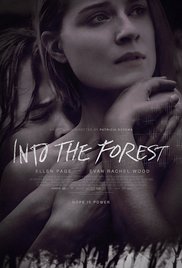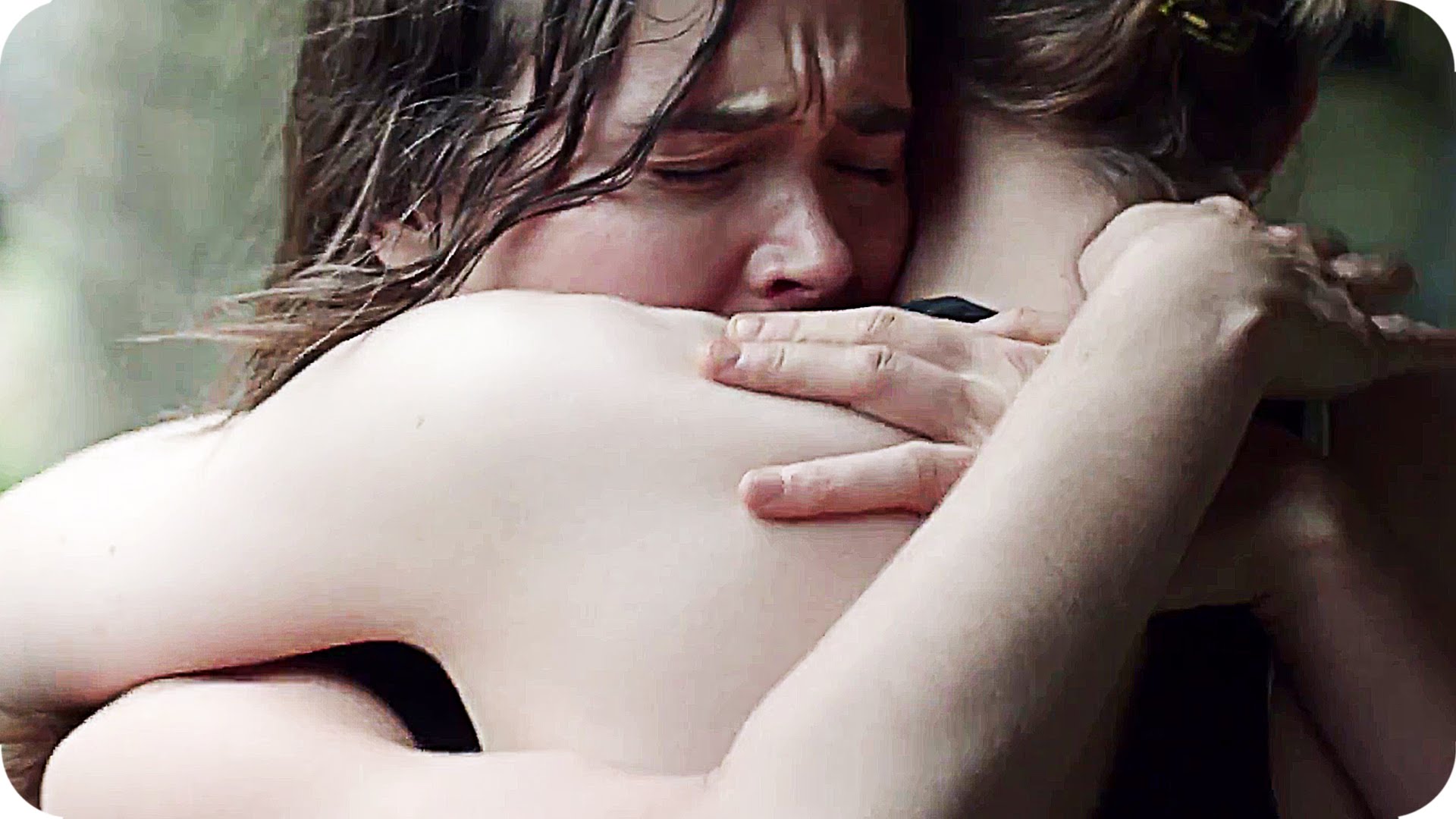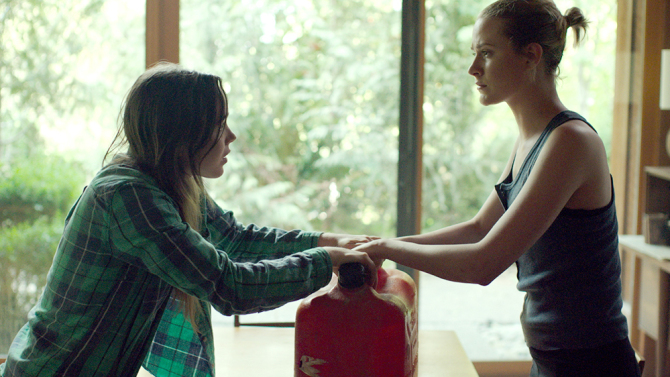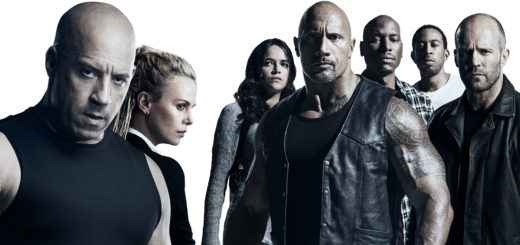INTO THE FOREST Review

Genre: Drama
Director: Patricia Rozema
Year: 2016
Had you told me that a grounded independent drama about the collapse of society starring Ellen Page was going to be released this year, I probably would have squealed in delight. That would’ve been before actually seeing INTO THE FOREST, of course, because the film unfortunately leaves much to be desired. It does deliver all the ingredients promised: a dystopian tale not about highway chases and Mexican standoffs, but instead a relatively quiet and dignified drama about two resilient sisters who hold onto each other tightly to survive. Add to that an environmentalist message and an out-of-the-box feminist narrative, and you’ve got the type of film that we just don’t see very often, something writer/director Patricia Rozema deserves credit for. INTO THE FOREST chooses to prepare its ingredients in such a rote and plodding way, however, that it’s incredibly difficult to fully appreciate the innovative story it attempts to present as fresh and new.
The story begins in the near future, following Nel and Eva, played by Ellen Page and Evan Rachel Wood, respectively, the young adult daughters of a survivalist father living in a semi self-sufficient house in the middle of the woods in what appears to be the Pacific Northwest (the exact geography is left vague, seemingly intentionally). When a power outage takes out their cabin, the family does not initially panic; after all, they collect their own rainwater, have chickens that lay eggs, and a backup generator if need be. After a day trip into town, however, it becomes readily apparent that the power is not coming back on and that the town, like the rest of the country, is going to make a definitive turn for the worse. The girls and their father return home with the intention of hunkering down and waiting out the power outage in isolated safety. Their plans are upended when the father’s chainsaw suddenly breaks, slicing his carotid artery and killing him in minutes. The girls are stranded in a house with limited food, limited gasoline, and no way to connect to the outside world.
Admittedly, up to this point in the narrative, INTO THE FOREST is pretty good, giving us just enough information on the apparent apocalypse and the family’s dynamic without over-explaining much. The plot of the first act is even fairly cleverly executed; an innocuous mistake Nel makes near the very beginning inadvertently leads to the chainsaw breaking. Yet the aftermath of the father’s death is where the film starts to show its true colors. An overlong montage set to an overbearing score shows the girls burying and grieving their father, followed by a brief scene in which Nel struggles to rouse a depressed Eva out of bed for breakfast. It’s a frustrating sequence, the most compelling scene only getting a fraction of the screentime in relation to the predictable montage. Rozema could be excused if this were a one-off occurrence, but it proves to be her formula for most of the second act. A few scenes of plot development, a slightly interesting character beat that feels unfinished, and another boring montage set to an obtrusive score.

“If we close our eyes tight enough, maybe we’ll end up in a more emotionally complex movie.”
Now, it may seem like I’m harping on the score, but it’s particularly offensive for two key reasons: One, it really is terrible, in that it’s used to manipulate the audience’s emotions to tell them how to feel about the circumstances instead of leaving the audience room to observe and decide for themselves how to assess the ups-and-downs the characters experience. A great score should quietly build and eventually crescendo, subtly setting mood and suggesting things to come rather than beating the audience over the head as they’re happening. Two, if ever there were a film that should logically be devoid of music almost entirely, it’s this one. Eva’s entire ambition before the apocalypse hit was to become a professional dancer, and the agony of being without music and left to practice her dancing to only a metronome drives her nearly insane. We would identify with her character so much more if our world as an audience more closely mirrored hers, with none of us being granted the reprieve of swelling strings to make it all feel better every fifteen minutes.
Really, that’s the crux of the issue with INTO THE FOREST. It’s as if Rozema is afraid to ever leave the audience squirming at how truly dire Nel and Eva’s situation is. We never get a sense of how hopeless the sisters must feel because Rozema stops trying to come up with clever ways to develop the plot or the characters. The sisters bicker and argue, but they’re never truly given the nasty, knock-down, dragout fight two siblings would reasonably have in such a scenario, which is a shame considering Page and Wood are both such capable actors, delivering more than satisfactory performances when given the rare opportunities to do so. For most of the second act, Rozema attempts to create an interesting conflict surrounding the girl’s last remaining tank of gasoline, but the girls are too congenial even here to sustain anything compelling.

“I respectfully disagree with your position but still love and admire you all the same.”
Maybe this is what Rozema is attempting to get at with INTO THE FOREST, that while men may turn on each other and fight, women can always find an agreeable way to settle their differences. Maybe it’s part of why she chose to frame and contain her story the way she did… But unfortunately it still doesn’t make for particularly satisfying storytelling. You may very well take the action and mayhem out of the apocalypse, but at the end of the day, you’re still fundamentally dealing with the apocalypse. When all normal societal structures collapse, we need to see people’s humanity decay and be re-discovered, not simply be maintained stoically throughout, despite the circumstances.
Rozema’s attempts to tell the tale of a very possible end to modern society are deeply admirable. INTO THE FOREST may prove to be an accurate prediction of the endtimes. Not only that, she attempts to offer a message of hope, suggesting that possibly things won’t be as dark as they seem once we make it through to the other side. Best intentions aside, however, her poor use of film form makes this a hard film to really recommend. MAD MAX: FURY ROAD may be a less realistic depiction of a feminist-driven apocalypse, but damn if it’s not the more well-made film.
Verdict: Do Not Recommend



